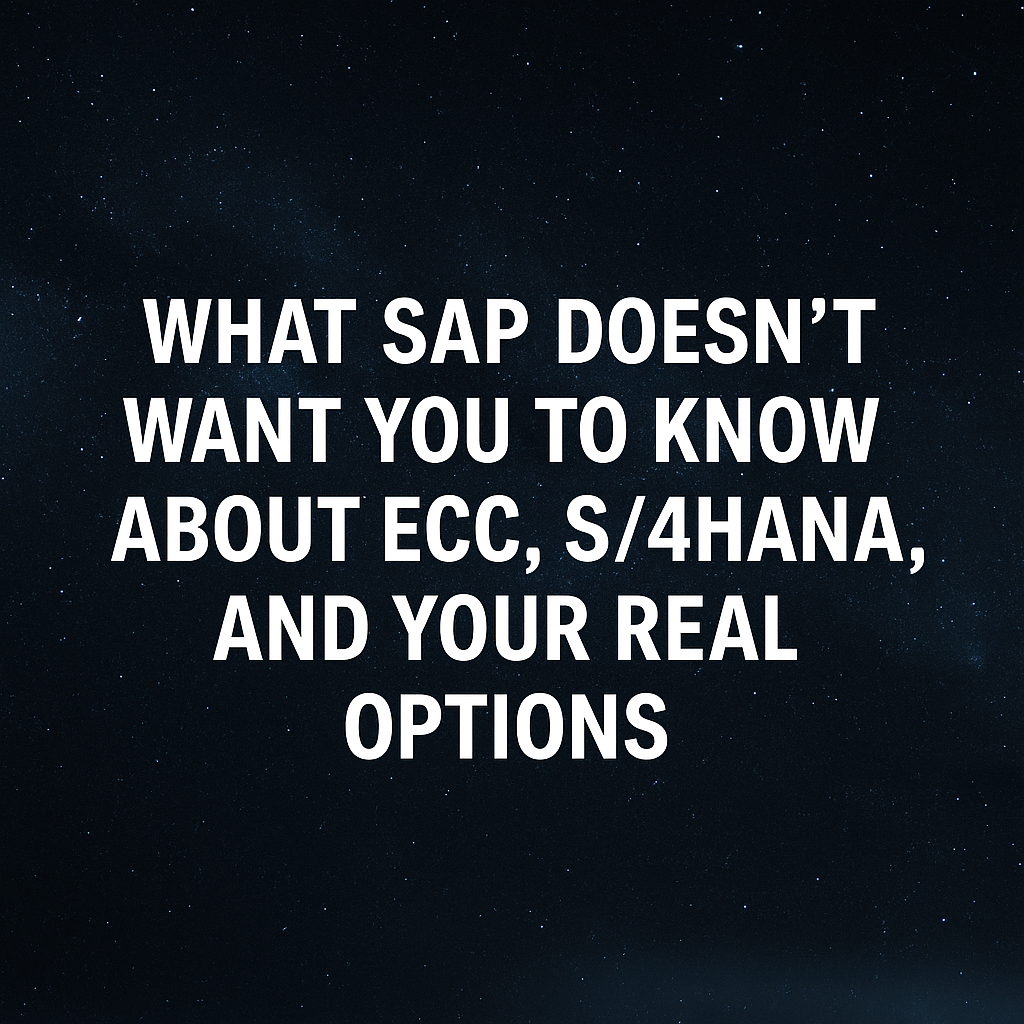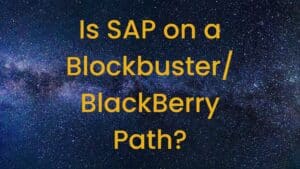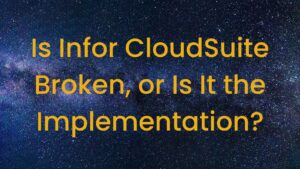The ERP world is at a boiling point — especially for SAP customers.
If you’ve invested heavily in ECC and SAP is already pressuring you to jump to S/4HANA, you’re not alone. But here’s the truth SAP doesn’t want you to know: you don’t have to follow their timeline — or their narrative. You have options. And those options are more viable, more cost-effective, and more business-aligned than you might think.
Let’s break down what’s really going on.
Table of Contents
ToggleTruth #1: SAP ECC Support Isn’t Really Ending in 2030
SAP officially claims that ECC support ends in 2030 — a date that’s looming large for many CIOs and CFOs. But third-party support providers like Rimini Street, Spinnaker, and others are stepping in to fill that gap — offering extended support through 2040 (and likely beyond).
This means you could get 10 more years of runway without making a forced, costly leap to S/4HANA.
We’re already working with companies who just finished implementing ECC after a multi-year global rollout — and are now being told by SAP that they need to start planning their upgrade. Imagine pouring years of time and millions of dollars into a system, only to be told to replace it before you’ve even realized the ROI. It’s happening everywhere.
But here’s the deal: if your business case for ECC is built on a seven-year value realization model, and you’re only two years in — why switch now?
Truth #2: Interoperability Layers Like Palantir and Snowflake Are Changing the Game
The second truth SAP doesn’t want to advertise? You don’t need to rip and replace to modernize.
Emerging technologies like Palantir AIP, Snowflake, and similar AI-powered platforms are enabling companies to build interoperability layers across old and new systems. These layers deliver real business insights and process improvements without overhauling your ERP stack.
You don’t need to dive into a massive transformation project to unlock the value of analytics, automation, and AI. You can start small, prove ROI, and modernize at your own pace — on your terms.
This is especially important for private equity firms or holding companies managing multiple businesses on different systems. Rather than standardizing everyone on S/4HANA or Oracle, interoperability layers let you keep what’s working and still operate as one cohesive enterprise.
Perspective Shift: Stop Letting Vendors Dictate Your Roadmap
Software vendors love urgency. It’s good for sales.
But your business isn’t a sales target. It’s a living, evolving organism with its own goals, needs, and timeline. So when SAP says “you must upgrade,” take a step back and ask:
- Does this upgrade create net new value for us?
- Are we ready from a process and change management perspective?
- Is this aligned with our strategic goals — or just theirs?
Let’s be clear: there’s nothing wrong with older tech if it’s still delivering value. Many organizations still run AS/400-based systems or homegrown legacy tools that have lasted 30+ years. Would we recommend staying on those forever? No. But forcing a migration just because the vendor says so — without a compelling business case — is a risky move.
The AI Factor: A New Wave of ERP Innovation
AI and machine learning are accelerating ERP disruption. Faster deployments, automated testing, advanced analytics — these innovations aren’t limited to SAP and Oracle. In fact, they’re spawning new startups and mid-tier players that are more agile, more flexible, and more attuned to modern business needs.
With robotic automation, cloud-native tools, and composable architectures, we’re seeing implementations in months instead of years. That’s a massive shift from the traditional, bloated ERP rollouts of the past.
This AI-fueled momentum is leading to a new generation of ERP platforms, tools, and ecosystem partners that are solving real business problems faster and more efficiently than the legacy vendors.
Final Thought: You’re In Control — Not SAP
Whether you’re a CIO managing a multi-entity portfolio, a mid-sized manufacturer still sweating your ECC investment, or a growth-stage firm looking to scale — remember this:
🚫 You don’t have to upgrade just because SAP says so.
✅ You can extend ECC support until 2040 and still modernize in parallel.
⚙️ You can layer AI and analytics on top of your existing systems without ripping them out.
🧭 And you can define your own roadmap — one that’s driven by business value, not vendor pressure.
Now’s the time to think strategically, not reactively.
Need help navigating your ERP future? That’s what we do. Let’s build a roadmap based on your business, not theirs.
Explore more transformation insights and join us at Stratosphere 2025, where real-world ERP strategies take center stage.






